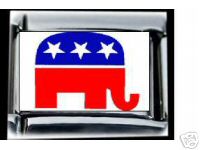INDIVIDUALS AND FAMILIES
1. Keep ALL of your paycheck.
FairTax replaces the entire federal income and Social Security tax systems, including personal, gift, estate, capital gains, alternative minimum, Social Security/Medicare, self-employment, and corporate taxes.
2. No fear the IRS will come after you for making a mistake – income tax is gone.
3. FairTax funds the US government at current levels, including social security and medicare.
4. You get a rebate at the beginning of each month ($178 per social security card owner) so that you pay no tax up to the first $24,000.00 you spend.
5. FairTax is a consumption tax. You pay tax only of purchases of new items and services.
6. The poor pay no income tax, thanks to the “prebate.”
7. Pay no tax at all on pre-owned items.
8. Reduces prices 20% to 30% by removing taxes passed along to consumers by businesses: 7.65% for earnings taxes, corporate and other taxes businesses pay. WalMart has promised to cut prices when the FairTax goes into effect.
9. Families can spend or save – or both. Their choice.
a. The average family making $50,000.00 a year will have $7,500.00 more a year in discretionary income.
10. You can set up any kind of savings or investment retirement account without worrying about taxes or government rules.
11. College tuition becomes a tax-free expenditure from tax-free income.
12. No more paying tax preparers, spending time collecting data to comply with tax laws. (Americans spend an estimated $250 - $600 BILLION annually on compliance efforts. That’s about $1,000.00 to $2,000.00 annually for every man, woman and child in the US since businesses embed their tax costs into prices.
13. It’s simple, easy and predictable, as opposed to the current 60,044 pages of tax code.
14. Never have to float a loan to pay your tax bill.
15. The more you earn, the more money you have in your pocket.
16. Lower income workers can become homeowners easier than ever because savings are tax free and therefore accumulate faster.
17. The income tax exports our jobs, rather than our products. The FairTax brings jobs home.
18. Mortgage interest rates will come down approximately 2%, creating a real estate boom and allowing homeowners to refinance at lower rates.
19. No death tax. Farms and businesses can be passed down through families without penalty.
20. Families can provide financial assistance to each other without tax penalties.
21. It encourages families to buy health insurance and puts the health-care system on a direct pay basis. Getting rid of third party pay brings health costs down.
22. Individuals and businesses can give freely to churches and charities without worrying about exceeding an allowed limit.
23. It makes April 15 just another day.
24. Eliminates the regressive payroll tax. Now everyone is taxed a minimum of 7.65% on our first dollar of wages up to $90,000.00 (FICA cap).
SOCIAL SECURITY AND MEDICARE
25. It funds Social Security and Medicare at a level equal to or more than the present.
26. All 290 million Americans and 51 million foreign tourists find Social Security and Medicare with their purchases. Today only 110 million workers fund these programs via deductions from their paychecks.
27. The wealthiest Americans, now exempt from FICA taxes, will now contribute to social security even if most of their income is from investments.
THE ECONOMY
28. FairTax makes the United States the only country in the world that doesn’t tax production.
29. Eliminating the capital gains tax increases business investing.
30. Business owners can plan better since they no longer have to consider tax implications.
31. By eliminating the $3 compliance cost per $1 in payroll and income taxes that business owners now have to pay, it makes it possible for business owners to raise salaries and/or invest more in their companies.
32. American products become more competitive overseas.
33. American products become more competitive with imported goods.
34. Encourages foreign investment in the US. America will be the most attractive tax-free haven in the world for business.
35. US companies and individuals now operating in foreign countries will find it cheaper and more productive to return to the US.
36. Those who hold taxable high-interest bonds will enjoy a windfall profit, since those bonds will no longer be taxed.
37. Federal Reserve rates will be based on consumption rather than future earning estimates, stabilizing inflation prevention.
38. FairTax reduces production costs for farmers and other subsidized businesses, leading to a reduction of subsidies (and Federal controls) and a reduction in the Federal budget.
39. Tax preparers and accountants can move into more productive financial fields in an expanding economy where they can add to the standard of living and earn more money.
CHURCHES AND CHARITIES
40. Churches and non-profits no longer have the expense of filing tax returns and paying for social security and medicare for employees.
41. Churches and charities regain their First Amendment rights to engage in free speech without fear of losing their tax-free status.
42. FairTax protects Americans from IRS unreasonable searches and seizures.
43. It restores the Fifth Amendment rights, guarantees the right to due process by negating the need for it.
44. FairTax restores individual privacy. The government no longer knows where you work, what you earn and what you are doing with your income.
45. No income tax means you don’t have to prove your innocence from accusations of the IRS that you misinterpreted tax law.
46. The government no longer requires a marriage clarification for tax purposes.
47. It eliminates the need for courts to decide which divorced parent gets to take the tax deduction for children.
48. State budget revenues increase because states, counties, school districts and municipalities no longer have to pay FICA taxes.
49. Eliminates administrative costs paid by states when they collect state sales taxes because states can piggyback their tax collection onto the national tax collection and be compensated ¼% in an administrative cost give-back. Retailers also get a kickback for collecting FairTax.
50. FairTax eliminates campaign donations for “tax favors.”
51. Eliminates Congressional wrangling over tax cuts, the tax code, etc. giving legislators more time to solve pressing issues.
52. FairTax saves 300.000 trees a year. The IRS sends out 8 billion pages of forms and instructions annually.
53. Since it taxes only new items, FairTax encourages the purchase of pre-owned taxes, cars, clothes, furniture, homes, etc. Recycling is environmentally friendly.
Thanks to Kenneth J. Van Dellen and friends, authors of 50 Reasons For The FairTax
Read More Here!



